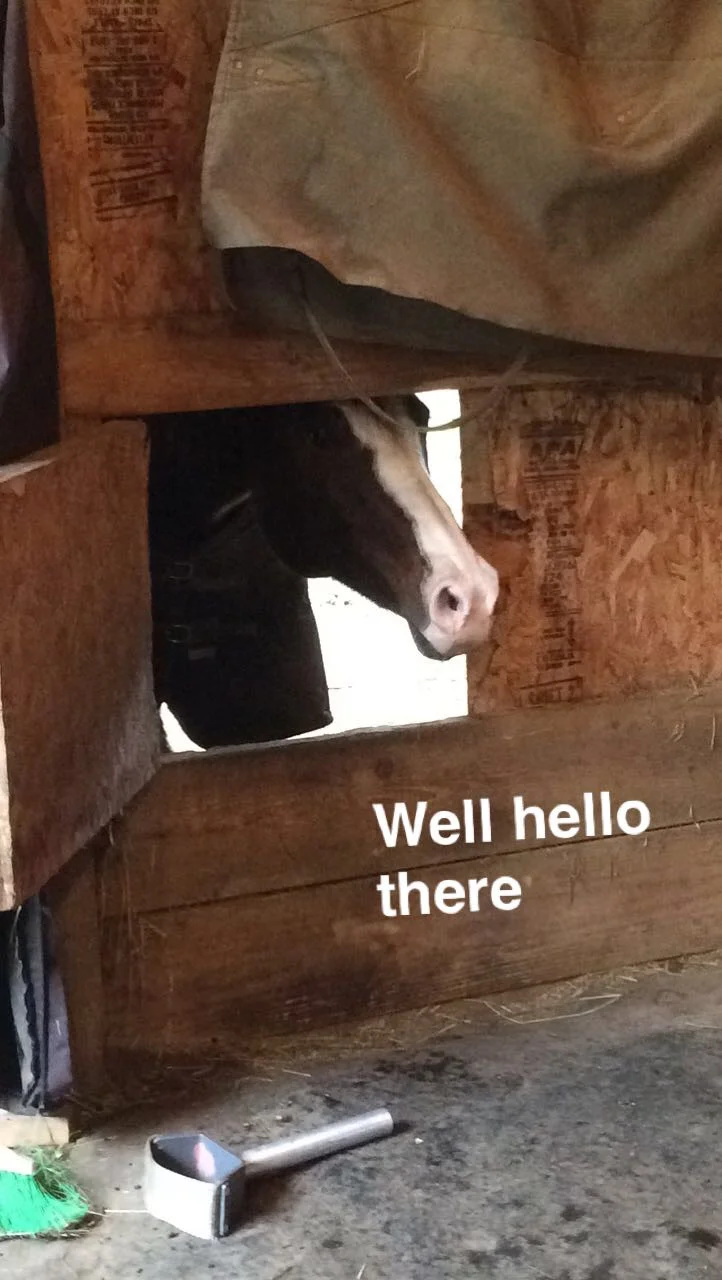Frequently Asked Questions
Where do you work?
Most of my work is within 60 minutes of SE Portland, Oregon. Places I frequent include Hillsboro, Newberg, Oregon City, North Plains, Beavercreek, Wilsonville and Boring. Regardless of your location, I charge a trip fee to show up.
What type of horses, mules and donkeys do you service?
I service all sizes, breeds and disciplines from drafts to miniatures with a focus on performance and lesson horses that are either gaited or in an english discipline.
Why did you choose this profession?
Horseshoeing is a great way for me to combine lifelong interests. I am a scientist at heart. But I also love working with equines and building things with my hands. In the horseshoeing profession, I can continue to apply my analytical strengths while working with horses. I am grateful to have found the trade and continue to challenge myself by learning more.
My equine is lame. What should I do?
I recommend looking at the feet first. Did your horse step on anything that is still stuck in the foot? Is there any noticeable bleeding? How is the horse standing at rest? Has your equine recently been placed in a new environment? Lameness can occur for a variety of reasons including the presence of an abscess, laminitis, trauma, and genetic diseases such as, navicular disease, equine metabolic syndrome or Cushing’s disease. Depending on the cause, a horse may need immediate veterinary care.
A morgan with show shoes used to make the horse’s gait more animated
Why do people shoe horses?
Horseshoes can protect the foot, help fix or alleviate pathological issues, improve traction, and change how a horse moves. Plenty of horses do not need horseshoes, but in environments where hoof wear exceeds growth, horseshoes may be appropriate. Shoeing a horse can also provide a horse with support when the foot or limb is compromised. Support can be important in comforting a horse with navicular disease, a coffin bone fracture, or stressed tendons.
How can I keep my horse out of the mud?
By picking up manure and composting it! It sounds simple, but I know many people struggle with keeping their horses dry in the rainy season. Luckily there are tremendous resources available for horse owners to manage pastures and paddocks so that your horses don't have to suffer from too much moisture. Please check out the Horses for Clean Water website to learn about some simple solutions. If a project seems too daunting, your county's soil and water conservation district may also be able to help with project planning and funding.
When and how can I schedule an appointment?
I schedule most new clients three to four weeks before their equine needs service. Please fill out the form at the bottom of the screen to begin the scheduling process.

